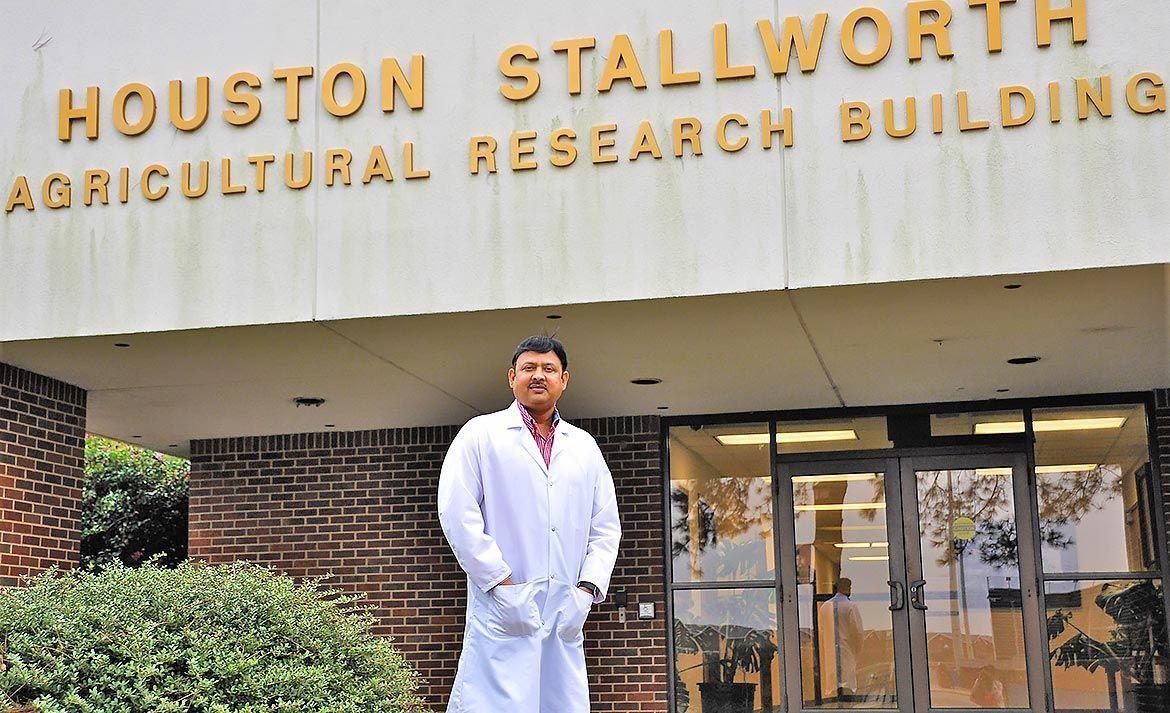Two Fort Valley State University rising sophomores will have the opportunity to further their education and prepare for the workforce through a 2018 summer program funded by the National Oceanic and Atmospheric Administration (NOAA).
NOAA, the U.S. federal government agency responsible for monitoring the climate and environment, will fund two selected FVSU students’ participation in the Experiential Training Summer Program (ETSP).
ETSP is an eight-week program beginning June 1, 2018, that will provide summer experiential training, such as mock interviews and research presentations, designed for students interested in atmospheric sciences and meteorology. Students selected for this program will spend six weeks at FVSU and two weeks at Howard University in Washington D.C. Benefits include a $5,000 stipend ($4,500 during the summer and an additional $500 after proof of application to the NOAA scholarship program) and covered expenses for travel and housing.
Dr. Hari Singh, a FVSU research associate professor for plant sciences, is able to offer the program because of FVSU’s partnership with the Center for Atmospheric Sciences, Meteorology, Societal Impact and Environment (CAMSIE). Led by Howard University, CAMSIE is comprised of 13 institutions of higher education that work as partners. CAMSIE’s overall goal is to educate and conduct research that supports NOAA’s mission to recruit, train and graduate students particularly from underrepresented communities.
Singh, who represents FVSU as a lead principal investigator for CAMSIE, said CAMSIE received $15.5 million in federal grant funds last year to cover a five-year period. This award supports education and research that aligns with NOAA’s goals in atmospheric sciences and meteorology.
“NOAA’s broader goal is to have highly-trained professionals in the atmospheric and environmental sciences workforce,” Singh said.
Students selected for ETSP will train at a CAMSIE institution, work with CAMSIE researchers and engage in technical writing, presentations and professional development activities. FVSU students in biology, agriculture, sociology, economics and communication are encouraged to apply.
“Once these students are done with the program, they will be encouraged to apply for the NOAA scholarship that will support their undergraduate studies,” Singh said.
In addition, one graduate student interested in atmospheric and environmental sciences may receive up to $15,000 per year to pursue a master’s degree. FVSU graduate students from any related disciplines can apply.
Singh said both opportunities can help students stay informed and get an upper hand in training.“It will really be a good thing for our youth pursuing their undergraduate or graduate degrees,” he said. “There are a lot of opportunities in the NOAA mission workforce, and there are aspiring students who can actually get trained and get right into a career.”
Dr. Govind Kannan, dean of the College of Agriculture, Family Sciences and Technology, said “I commend Dr. Singh for establishing this partnership and creating an excellent opportunity for our students to gain such valuable experiences.”
In order to apply for the ETSP, a student must be a rising sophomore and a U.S. citizen. Additionally, applicants must have a 3.0 GPA, two letters of recommendation, official transcripts and an academic resume. Completed applications must be submitted to Singh at singhh@fvsu.edu. The deadline to apply is March 1, 2018.
For more information about ETSP, contact Singh at 478-822-1077 or singhh@fvsu.edu.

